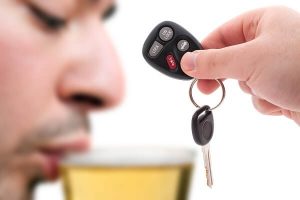
Regardless, if you have been arrested for any DUI, you need to contact an attorney immediately. All too often, defendants undervalue the severity of a DUI arrest and potential conviction. DUIs, even if it is your first-time, can affect you the rest of your life financially, professionally, and emotionally.
How the Two DUI Types Work in Albuquerque
Every state, including New Mexico, has a blood alcohol concentration (BAC) threshold. If you pass that threshold, it is illegal for you to operate a motor vehicle. Some states are harsh enough to have zero tolerance. That means any trace of a substance that impairs your ability to drive could result in a DUI.
In New Mexico, the current BAC limits are:
- Drivers 21 Years and Older – It is illegal to drive with a BAC of 0.08 percent or higher.
- Drivers Under 21 Years – A driver under the legal drinking age cannot have a BAC of 0.02 percent or higher.
- Commercial Licensed Drivers – Anyone operating a vehicle with a CDL license cannot have a 0.04 percent BAC or higher.
What Is a DUI Per Se?
DUI per se focuses strictly on the BAC limits. If the evidence states you were over the legal limit, you can be charged with a DUI per se. Prosecutors do not have to provide additional evidence or show that you were unable to operate a motor vehicle. Instead, they just submit the BAC evidence, and you can be convicted.
Even passing a field sobriety test could result in a conviction, because you still had a BAC that exceeded the maximum.
Would Refusing the Chemical Test Protect You from a DUI Per Se?
While you would assume that refusing a test that could prove you were intoxicated would save you from a DUI, you would be wrong.
To operate a motor vehicle, you are required to submit to chemical testing if you are suspected of driving under the influence. Typically, law enforcement gives you the choice of a breathalyzer or blood test. The law is known as implied consent. When you receive a driver’s license, you consent to all screening by law enforcement for suspected DUI or DWI.
If you refuse the chemical test, you will face additional penalties and can still be arrested and charged with a DUI. Furthermore, your refusal can be used against you in court – showing that you were most likely intoxicated and refused the test that would have proved it.
New Mexico has separate punishments for those who refuse to take a test – and these are in addition to the DUI penalties.
For your first, second, and third offense, you will receive an automatic one-year license revocation. If you refuse to take the test, law enforcement will confiscate your driver’s license right there and you will receive a temporary permit good for 20 days. In that time, you will go to an administrative hearing and it will be determined if you keep your license.
While law enforcement cannot force you, you must realize they can obtain a subpoena for a test – especially if you caused an accident, injury, or death during that suspected DUI.
The administrative hearing has no impact on the criminal trial. Instead, it is a hearing to determine if you can keep your driver’s license.
What Is an Impairment DUI?
Impairment DUIs focus on your driving quality at the time of your arrest and the behavior you exhibit. The courts have no precise definition of what “impairment” means. Furthermore, blood tests are not required. Therefore, if you refused the test, the prosecution may still charge you with an impairment DUI.
In these cases, the arresting officer’s testimony could play a substantial role. They would tell the court why they pulled you over and suspected you of a DUI. A couple of examples would be driving slowly, weaving in and out of lanes, or just failing your field sobriety test.
If you refuse to take the test, prosecutors could argue that your refusal was your admittance of guilt. After all, a person who was not under the influence would have taken a test to prove their innocence. Also, if you slurred your speech or you were combative during the arrest, this could equally determine that you were impaired.
Getting Help with a DUI
DUI per se and impairment-based DUIs can easily result in a conviction with little evidence. The courts like to punish those guilty of DUIs and set examples to the public. Therefore, if you have been arrested, contacting a defense attorney quickly is essential.
Your attorney can challenge the results of a blood or breathalyzer test, question the validity of the field sobriety test, and help prevent you from becoming another statistic. Furthermore, your attorney will ensure you receive a fair trial, and that impairment-based DUIs do not result in a conviction when you were not even intoxicated.
Contact the team at New Mexico Criminal Law Offices today and schedule a free case evaluation. Call 505-375-4661 or contact us online with your questions about DUI arrests.

